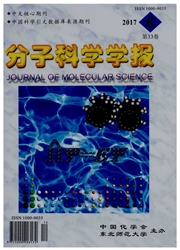

 中文摘要:
中文摘要:
随着全球经济快速发展对高效绿色能源需求的不断增长,锂-硫电池因具有较高的能量密度,成为了下一代高能量密度二次电池研发的重点.然而,锂-硫电池面临的循环寿命短、库仑效率低、安全性能差、较高自放电等问题,使其目前还很难实现商品化.锂-硫电池存在的这些问题主要与正极活性硫材料的高绝缘性、放电过程中产生的多硫化物溶解于电解液、硫正极在充放电过程中的体积膨胀与收缩、以及锂负极支晶化等有关.通过从锂-硫电池硫复合正极、电解液、黏结剂和负极等4个方面综述了高比能锂-硫电池的最新研究进展,其中重点介绍了硫正极复合材料的进展情况.
 英文摘要:
英文摘要:
With the increasing demand of the global economy for efficient and economic energy storage, Li-S batteries have become attractive candidates for the next generation high-energy rechargeable Li batteries because of their high theoretical energy density. However, the commercialization of Li/S battery still cannot be realized due to many problematic issues, including short cycle life, low cycling efficiency, poor safety and a high self-discharge rate. All these issues are related to the insulation of sulfur cathode, the dissolution of lithium polysulfide in liquid electrolyte, the series products of sulfur reduction intermediates, and the volumetric expansion of sulfur during lithiation. In this review, recent developments on sulfur cathodes, electrolyte, adhesive agents and anode are presented and discussed. Focus on the progress of sulfur cathode composite materials are introduced.
 同期刊论文项目
同期刊论文项目
 同项目期刊论文
同项目期刊论文
 期刊信息
期刊信息
